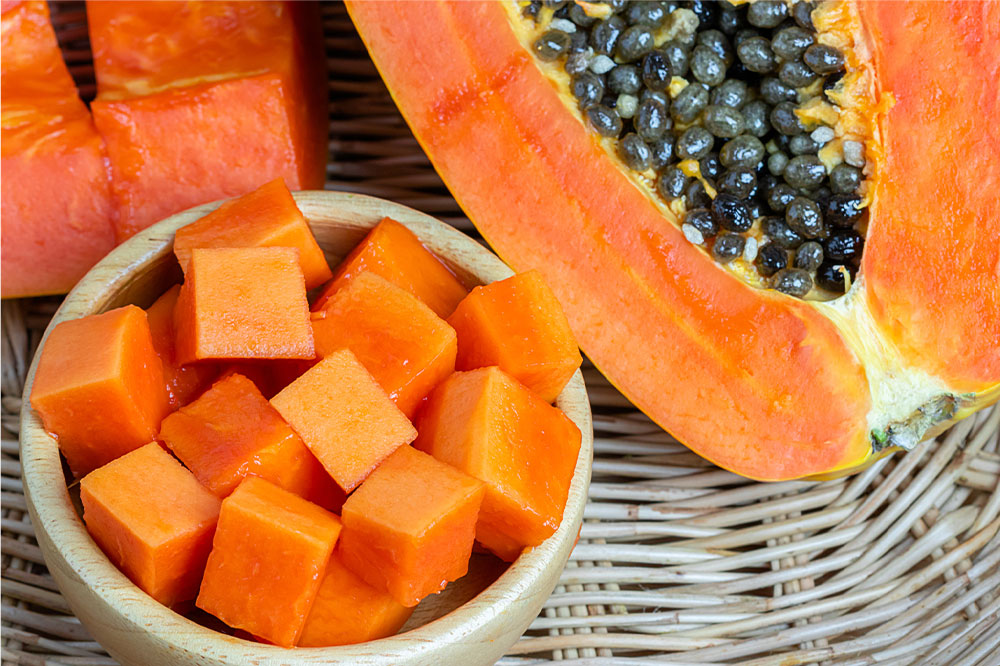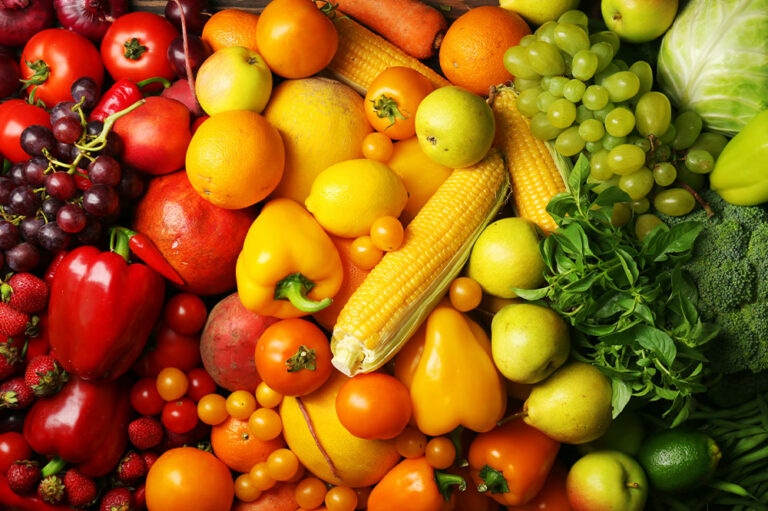
Top 8 foods that relieve nasal congestion
If your nose is stuffed up and you have a hard time breathing, the last thing you probably want to think about is food. However, some of the most common remedies for nasal congestion caused due to nasal polyps can be found in the kitchen. Eating specific foods may relieve your symptoms and help reduce inflammation in your airways. Discover the eight best foods you should eat to alleviate nasal congestion and other symptoms.
What does nasal congestion mean?
Nasal polyps (or nasal congestion) are small, non-cancerous growths that develop on the lining of the nasal passages. They often appear as soft, painless, teardrop-shaped tissue lumps hanging down and may block the nose completely. Though typically harmless, it is important to be aware of nasal polyps if you have allergies or other chronic respiratory conditions such as asthma or cystic fibrosis.
Nasal congestion may cause a runny nose and difficulty breathing. However, it doesn’t have to be this way. The following eight food items may provide natural relief from your nasal congestion – some of which may already be in your kitchen.
Garlic
Garlic contains allicin and ajoene compounds, which have the following benefits:
- Antiviral properties (the ability of a compound or organism to prevent the growth and spread of viruses)
- Antibacterial properties (the ability to reduce the growth and reproduction of bacteria)
- Antifungal properties (the ability to stop the growth and proliferation of fungi such as yeast and mold).
These properties make garlic a great addition to any remedy for nasal polyps. Additionally, garlic may promote expectoration (coughing or spitting out the accumulated mucus from the respiratory tract). This helps expel irritants from the nasal passages.
Following are the homemade ways to consume garlic:
- Garlic milk
Add one or two cloves (minced) of garlic to a cup of warm milk and let it sit for 15 minutes. Strain the milk before consuming it warm. - Garlic tea
Another remedy for reducing nasal congestion is garlic tea. Heat two cloves of minced garlic with one cup of water and get it to a boil, then let it simmer for ten minutes. Strain and have it warm while taking in the garlic-induced vapor.
Ginger
Ginger provides antibacterial, expectorant, and antimicrobial qualities, which may help reduce the symptoms of nasal congestion. Moreover, its anti-inflammatory properties work together to reduce the redness and swelling caused by nasal polyps.
To reap these benefits of ginger, you may prepare a soothing cup of fresh ginger tea to relieve nasal congestion. Grate some fresh ginger and mix it in boiling water, adding honey or stevia afterward for sweetness. This natural remedy may help reduce inflammation, sinus pressure, and mucus production.
Inhaling ginger-flavored vapors directly may also help. Add some chopped ginger to hot water in a large pan. Then, cover your head with a towel and sit with your face facing the pan. Inhaling the steam for 5 minutes can provide soothing comfort to nasal passages.
Chili peppers
Chili peppers contain naturally-occurring compounds called capsaicinoids. These compounds cause heat sensation after coming in contact with pain receptors in the tongue or lips. They help open up blocked nasal passages, draining mucus and relieving pressure from the nasal polyps. This may reduce the discomfort caused due to congestion and make breathing easier.
Chili peppers are a great way to treat nasal congestion and other respiratory illnesses (pneumonia, bronchitis, tuberculosis, etc.) You may incorporate them into your favorite dishes, sauces, dips, soups, and stews.
Hot tea
Hot tea can be a great option for naturally relieving nasal discomfort. It’s packed with anti-inflammatory and antibacterial properties, and antioxidants that help clear away blocked mucus. Additionally, its steam is often effective in loosening up stuck blockages.
A cup of hot tea may help fight attacks from foreign pathogens (influenza and viruses) that can cause inflammation in the nasal passages.
Honey
Raw honey contains properties that help reduce inflammation in the nose and prevent thick, sticky mucus from forming. You can break up mucus and clear blocked airways by adding a teaspoon of raw honey to a glass of warm water or tea. Additionally, its antibacterial properties attack germs and act as a natural remedy. Honey is also a natural antioxidant and contains antibacterial agents (triclosan, chlorhexidine, and polymyxin B sulfate) that may help reduce infection in the sinuses.
Furthermore, as a mild expectorant, it cleans the nasal tract, removing allergens and other impurities (smoke, dust, and pollen). The soothing nature of honey helps to dampen the airways and reduce the irritation that may cause nasal congestion.
One of the most effective to use this ingredient is to mix a spoonful of honey in warm water or tea and drink it before bed. Another easier option is to have a tablespoon of honey undiluted.
Citrus fruits
Citrus fruits like oranges, lemons, and grapefruits contain natural ingredients that may help you fight nose blockage. The antioxidants in citrus fruits (hesperidin and limonene) may help reduce inflammation in the nasal passages and the throat. Additionally, these antioxidants may also reduce mucus accumulation.
Vitamin C is the primary nutrient found in citrus fruits. This vitamin is more than just a delicious addition to your morning juice – it possesses powerful healing properties. Not only does vitamin C help strengthen the body’s immune system, but its circulatory-boosting benefits offer relief from congestion and other sinus issues associated with colds or infections.
Turmeric
Curcumin, a compound present in turmeric, has many health benefits (eases joint pain and boosts body immunity), including the ability to fight off nasal congestion. In addition, curcumin is a powerful anti-inflammatory agent that may reduce inflammation in nasal polyps.
Curcumin naturally supports healthier mucus secretions in the nasal tract. These secretions form a protective barrier of proteins, carbohydrates, and lipids, which trap foreign particles while providing lubrication for smoother breathing. In addition, adding 500-600 mg of turmeric to daily food preparations may reduce inflammation and congestion.
You may reap the benefits of this age-old household remedy by drinking turmeric tea or adding turmeric powder to salads, soups, and sauces.
Broths
Broths are hugely beneficial to overcome nasal polyps. Adding vegetables and herbs to a broth stock provides essential oils and nutrients, relieving nasal polyps and other cold symptoms. The cooking process breaks down the fibers in the vegetables, enabling them to release vitamins and minerals that boost your immune system.
In addition, broths are also a rich source of minerals, especially zinc. Zinc has excellent anti-inflammatory and antiviral properties, which may help reduce swelling of the nasal passages.
Plenty of foods help fight nasal congestion, from ginger and garlic to chilis. All these superfoods may help clear up nasal polyps in no time. While it’s great to include these items in daily meal plans, it’s important to note that the best way to treat a cold or an allergy is by resting, exercising, and having balanced meals.







